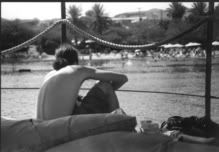History Education in Croatia: EUROCLIO Press Release
The resulting EUROCLIO press release:
Stirrings of Bias in Croatia?
In September the Croatian Ministry of Education approved a proposal by a group of former special police officers, called “Association Tigar 90/91”, to let war veterans teach about the 1991-1995 Serbo-Croatian war in elementary schools.
Some compare this method of nationalistic history teaching with old communist methods and even fear the re-appearance of shooting practice at school. Others think the negative reactions are out of proportion and that having former special police officers teach about the war is like inviting poets to advice on poetry.
Although the schools are free to choose whether or not to adopt these lessons, to EUROCLIO, the Standing Conference of History Teachers’ Associations, this proposal is questionable because of the ethnic and nationalistic implications it can have. The fierce public debate which has arisen over this issue, especially in the newspapers, exposes the complex situation of history education in Croatia especially on this sensitive subject. There is strong public pressure to maximize a nationalistic approach. The Ministry has now stated only those with a pedagogical qualification can teach.
Special Textbook for Danube basin region put on hold
After the integration of the Danube basin region (the most eastern part of the former province of Krajina) into the Croat State in 1998 a moratorium on teaching contemporary history to the local Serb population until 2003 was put into effect. A governmental commission started in 2002 to produce a new supplement. Knowing the sensitivity of the subject and after failed attempts in 2002 and 2003 the commission finally assigned text writers to write an unbiased and balanced supplement on contemporary Croatian history in 2004. Their book concept which offered a balanced account of contemporary Croatian history however was not implemented by the governmental commission, and is now at the centre of public debate. The book concept has been dubbed “blasphemous of the Croatian War of Independence”, “pro-Milosevic” and “falsifying history” by some of the media. The government chose to play it safe and sidelined this project, while agreeing with the representatives of the Serbian community to use existing textbooks.
In 2004 the Ministry began to reform the National Curriculum to create new National Educational Standards and appointed commissions for history. After the first commission finished its work a new commission for history has been appointed behind the screens. This new commission wants to change elements of the curriculum and direct them towards a more Nationalist and sanitised History. For instance the word genocide, which was used to characterize the main reason for the Serbian exodus from Croatia, was removed.
Is the Croatian Ministry of Education changing its policy of modernisation by blocking changes in the History curriculum?
Calls for Modernisation and Balance
EUROCLIO calls upon the Croatian Ministry of Education to resist attempts of pressure groups to force History education in a more nationalist direction and to seize the opportunity and continue to modernize history education, by offering an open, balanced and multi-perspective account of Croatian contemporary history.
These examples of changing governmental policy towards history education however are not exclusively Croatian. We also remember the recent Chinese-Japanese controversy on History textbooks, the Turkish opposition against discussing the Armenian massacre of 1915, the Baltic accounts of the Soviet-era et cetera. Often governments promote a single, idealised image of ethnic nationality and identity, distorting or neglecting the stories of the different communities in their society.
About EUROCLIO
EUROCLIO, the European Association of History Teachers’ Associations, is the voice of the history teacher in the international context and promotes high quality history education. EUROCLIO also initiates and implements History projects, all over Europe, that always include all the inhabitants of a country and their human right for history. This is done by focusing on regional and local histories and by providing an international context.
EUROCLIO projects strive to produce balanced and multiperspective history textbooks that encourage critical thinking and open-mindedness toward the past, present day and the future.
More information on EUROCLIO


